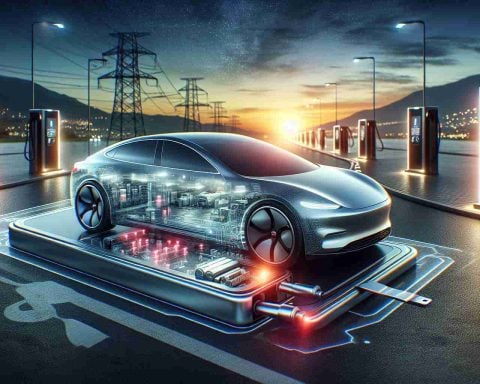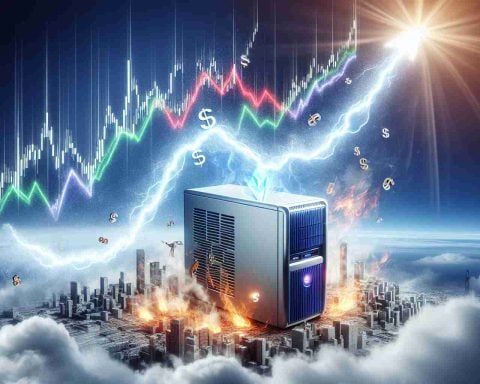- President Trump’s executive order threatens federal support for electric vehicles, altering previous sales goals.
- Industry experts believe the order may slow progress but not halt interest in EV innovations at the upcoming Chicago Auto Show.
- Infrastructure challenges remain, with calls for a gradual approach to EV adoption, prioritizing essential support systems.
- ComEd’s $100 million rebate initiative aims to improve EV infrastructure in northern Illinois.
- Concerns about the potential removal of the $7,500 EV tax credit may impact future sales and market stability.
- Consumer enthusiasm for electric vehicles continues despite political and economic uncertainties surrounding the industry.
In a stunning twist just two weeks before the highly anticipated 2025 Chicago Auto Show, President Donald Trump dropped an executive order aimed at slashing federal support for electric vehicles (EVs). This decision includes a drastic rollback of the ambitious target for EVs to constitute half of all new car sales, igniting a wave of speculation and anxiety among auto enthusiasts and industry experts alike.
As hundreds of thousands prepare to flock to the show, Jennifer Morand, general manager of the event, notes that while the executive order may slow the momentum, it won’t deter attendees from exploring the latest EV innovations. With critical infrastructure still needed, she emphasizes a more gradual approach—walk, crawl, then run—could make for better experiences in EV ownership.
Amidst concerns over support for charging stations and low-interest loans for manufacturers, a new measure from ComEd promises $100 million in rebates to enhance EV infrastructure in northern Illinois, signaling a glimmer of hope. However, there’s looming uncertainty about the potential elimination of the $7,500 tax credit for EV buyers, stirring fears of an industry downturn.
Holy Vu, a proud owner of a Ford F-150 Lightning, underscores the need for reliable charging options, suggesting that true adoption requires not just interest but also the necessary support systems.
As experts prepare for possible legal challenges against funding cuts, one thing is clear: the future of electric vehicles hangs in the balance as the Chicago Auto Show showcases cutting-edge designs and powerful innovations from the automotive world. Regardless of political shifts, consumer passion for new vehicles remains unyielding.
EV Revolution at Risk? Major Changes Loom Ahead of Chicago Auto Show
The electric vehicle (EV) landscape is facing a significant shake-up following President Donald Trump’s recent executive order that aims to curtail federal support for the electric vehicle sector. With the upcoming 2025 Chicago Auto Show set to showcase innovative advances in EV technology, this unexpected move has raised questions about the direction of the industry.
Key Information
1. Market Trends: A growing number of automakers are pivoting their strategies to meet consumer demand for cleaner vehicles despite federal uncertainties. Industry reports indicate that EV sales continue to rise, with many manufacturers investing heavily in electric models.
2. Rebate Initiatives: ComEd’s new $100 million rebate program aims to bolster EV infrastructure, showing that local initiatives can still offer incentives for adopting electric vehicles, contrasting with the federal rollback.
3. Tax Credit Uncertainty: The possible elimination of the $7,500 federal tax credit for EV buyers could impact sales significantly. Several studies suggest that such incentives are crucial for potential buyers who weigh the total cost of ownership versus traditional vehicles.
4. Sustainability Concerns: Environmentalists argue that maintaining federal support for EVs is essential in combating climate change. The rollback could hinder efforts toward reducing carbon emissions from the automotive sector, a primary contributor to greenhouse gases.
5. Consumer Insights: Owners of EVs like the Ford F-150 Lightning emphasize the importance of accessible charging infrastructure, indicating that successful adoption hinges on more than just interest in EVs; robust support systems are necessary for the transition to electric mobility.
FAQs
1. How will the recent executive order affect electric vehicle sales?
The executive order may slow the momentum of EV sales due to potential cuts in federal support and incentives. Analysts expect that if the $7,500 tax credit is repealed, it could lead to a decrease in consumer adoption rates.
2. What local initiatives are supporting EV infrastructure?
ComEd’s $100 million rebate program in northern Illinois is a significant local effort that aims to enhance EV charging infrastructure, mitigating some impacts of federal policy changes and encouraging EV adoption.
3. What are the long-term predictions for the electric vehicle market post-executive order?
Experts predict the EV market will continue to grow, albeit at a slower pace if federal support decreases. Many manufacturers are committed to transitioning their fleets to EVs, though challenges like charging infrastructure and financial incentives will need to be addressed.
For more insights on the future of electric vehicles and ongoing innovations in the automotive sector, visit AutoTrader.


















